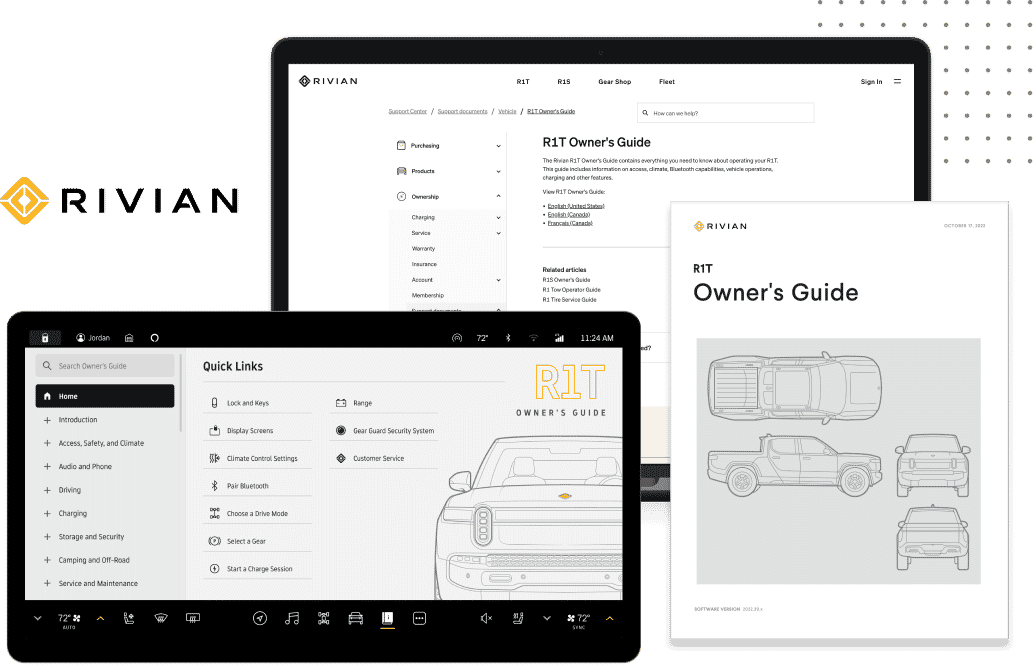Customer Success Story
EzGlobe Uses MadCap Flare to Deliver a Consistent Quality Experience across All Languages, Projects 30 Percent Reduction in Engineering Time
Goals
- Deliver a consistent, quality user experience across European and Asian languages
- Provide clients with best-in-class localization of Help content
- Ensure more predictable, on-time completion of projects
Benefits
- Deliver Help content in Western and Asian languages with a consistent look-and-feel
- Cut project engineering time by at least 30 percent
- Decrease the overall localization cost
- Eliminate unpredictability and redundancy related to work-arounds required by RoboHelp®
MadCap Software Solutions and Services:
A full-service localization company, EzGlobe recognizes that the ability to successfully deliver content in multiple languages does not lie solely on the localization teams. The right authoring tools and content development methodology also play a crucial role in global technical documentation.
For EzGlobe, the authoring tool of choice is MadCap Flare.
The decision to use Flare followed a detailed comparative analysis of Flare versus Adobe RoboHelp, which EzGlobe had used in the past. Only Flare provided direct translation into Asian languages, while RoboHelp® required workarounds using other tools. EzGlobe has since recommended Flare over RoboHelp® and is seeing a number of its customers switch to MadCap's software as well.
"Our customers have come to rely on us for timely, superior translation and localization services, capitalizing on proven methodologies and state-of-the-art technology," said Jean-Baptiste Daian, co-founder and president of EzGlobe. "MadCap Flare is based on XML, the emerging standard for content, and provides full Unicode for translation into both single- and double-byte languages. When our evaluation showed how much more effectively Flare would let us support the demands of our many clients whose businesses extend across Europe, North America and Asia, switching from RoboHelp® to Flare was the obvious choice.
Translation Workarounds Drive Up Costs
A technology company requiring European and Asian localization served as the catalyst for EzGlobe's evaluation. In 2005, EzGlobe was tasked with localizing online Help into six Western European languages and Japanese.
The client had developed the system using RoboHelp, then the standard choice for most technical writers. However, RoboHelp® did not support Asian languages. As a result, EzGlobe had to find a workaround, translating the files generated by RoboHelp® directly and then using the standard WinHelp compiler to build the Japanese WinHelp.
When our evaluation showed how much more effectively Flare would let us support the demands of our many clients whose businesses extend across Europe, North America and Asia, switching from RoboHelp® to Flare was the obvious choice.
Jean-Baptiste Daian Co-Founder and President, EzGlobe
Not only did the workaround for RoboHelp® require more engineering time and therefore cost to the client, the quality of the Japanese-language Help was compromised. It lost the user-friendly side-by-side layout of the other versions, some characters were corrupted, and it was impossible to maintain the customer's watermarked background. When generating the documentation in PDF, EzGlobe required a third-party tool to create a PDF from the Japanese-language Help.
Round 2: Flare Eliminates Workarounds
In early 2007, the same technology customer approached EzGlobe for a new product that was to feature both Microsoft Compressed HTML Help (CHM) and WebHelp. RoboHelp® 6, though available, still lacked support for Asian languages, so RoboHelpHTML was rapidly eliminated.
EzGlobe instead turned to MadCap Flare and conducted a trial localization project on a sample Help system that was developed using Flare. The goal was to verify that Flare would handle double-byte characters as advertised.
EzGlobe tested the translation capabilities of Flare using source documents that were embedded with Japanese Kanji characters. The resulting output featured the user-friendly side-by-side layout that was previously unavailable to them, corruption-free files, and fully functional index and search options.
"The managing of the indexing came as a pleasant surprise," noted Mr. Daian. "The keywords simply appear as an attribute of an XML tag, making translation work simple and the resulting translation consistent."
In addition to Flare's language-agnostic Unicode-based environment, EzGlobe has also found that Flare's XML-based projects and source files are compatible with most of the popular computer-aided translation tools. Finally, Flare's library of Snippets–reusable content–ensure consistency. They also decrease the overall localization cost, since content needs to be translated only once even if it is used in multiple locations.
"The ability to eliminate workarounds for our Japanese localization, Flare's ease of use, and its reusable snippets together are allowing us to realize a number of efficiencies throughout the localization process. Based on our current status, we expect to cut our project time by at least 30 percent while delivering a consistent quality experience across all seven languages. And that translates into a better, more cost-effective product for our customer."





